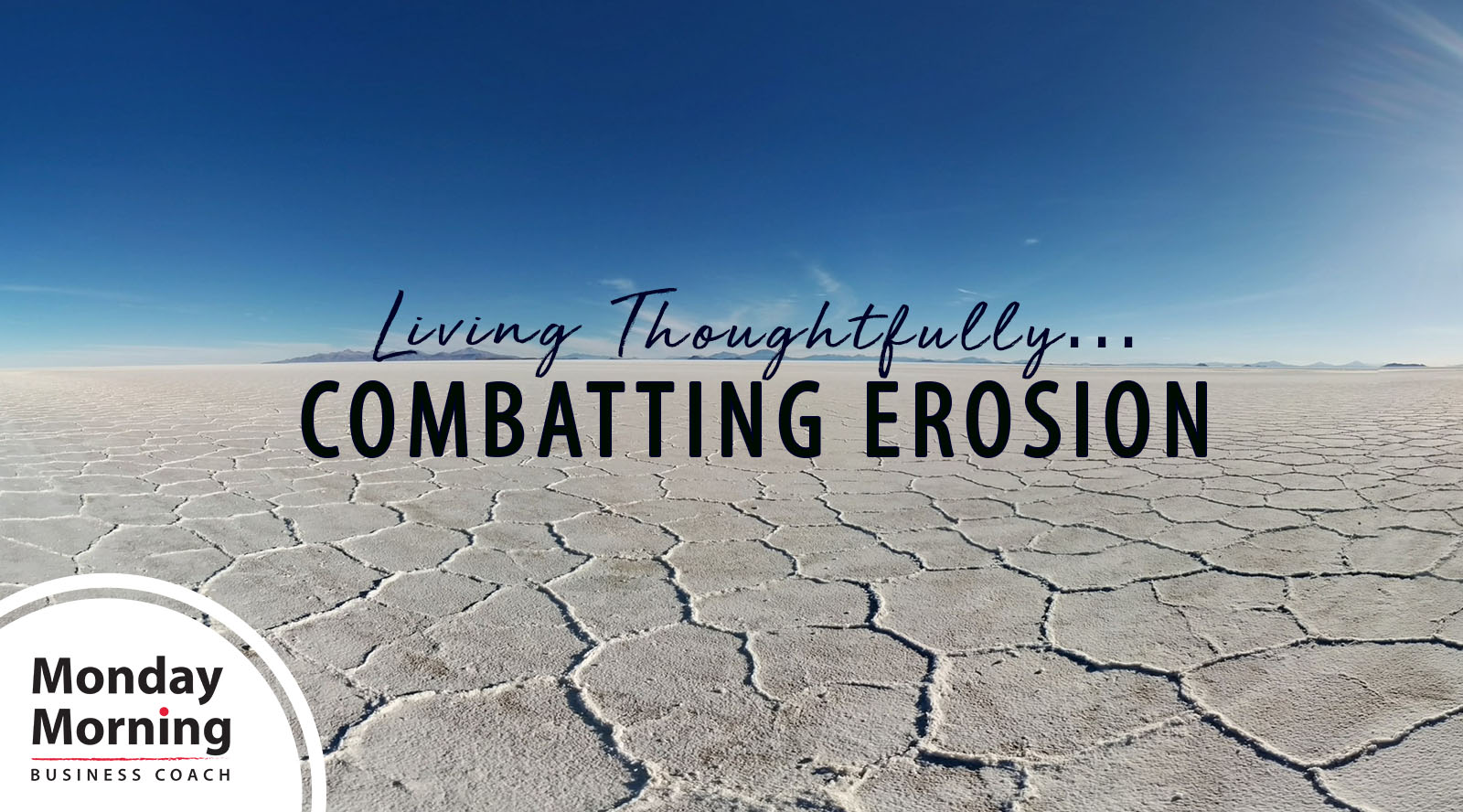In the face of this coronavirus pandemic, there’s been tremendous uncertainty about how life will unfold. People are working in new ways that require different routines, skills, and decisions, which can be quite challenging.
There’s so much out of our control that’s central to our sense of safety: money, time, connection, presence with loved ones during celebration or loss, and the list goes on. We’re hearing from people in different industries, roles, and locations around the country say, “I’ve got nothing left.”
with no end in sight, leaves people
feeling a little bit less each day.
We’re seeing the impact of erosion. It’s uniquely challenging and can be hugely undermining—often more challenging to individuals and communities than explosive experiences.
Think of it this way: when something significant happens—in a more explosive way—we know what to do. We either run away to get safe or run in to help others. Sometimes we freeze, but more often than not we run toward or run from.
With erosion, nothing looks particularly dangerous. It’s just a small change, a simple change. Much like the stone that can be worn away over time by a drip of water, a change that can sound appealing at first is not a problem, until it starts to erode our sense of ourselves.
a greater concern for all of us right now.
Many of us experience erosion as internal friction and, in turn, believe there’s something wrong with us. We feel less confident, less competent, and less of the person we know ourselves to be. A lot of small drips add up, and it’s hard to spot the danger in them. Therefore, it can feel like it’s a personal failure—an inability to handle the change in pressure.
And think of all the drips—having meetings by Zoom, not eating lunch with colleagues not getting those few minutes before or after meetings to connect more personally, sitting in uncomfortable chairs because you never really needed to use that desk in the living room in a regular way, working harder for less, not having a moment free of your loved ones, applying for support like unemployment or a business loan and having the application go into a black hole—small drips, over and over and over.
in our sense of self, leaving people
feeling broken and struggling to name why.
Identify the drips so that you can confidently see them. Consider naming them “erosion”. Once you can name it, you can start to work with it. You can see that there is nothing inherently wrong with you.
Talk to colleagues and friends about how you are experiencing erosion in your life. Take some time to be alone. Negotiate to use your office for some part of your week, etc. Once you know the specific things that are most erosive to you, you’ll have identified some places where you can make a few changes, so you aren’t being worn away.
Taking care and listening to yourself is so important during erosive times. You matter to us, to your loved ones, and to the world. Please, take good care.


